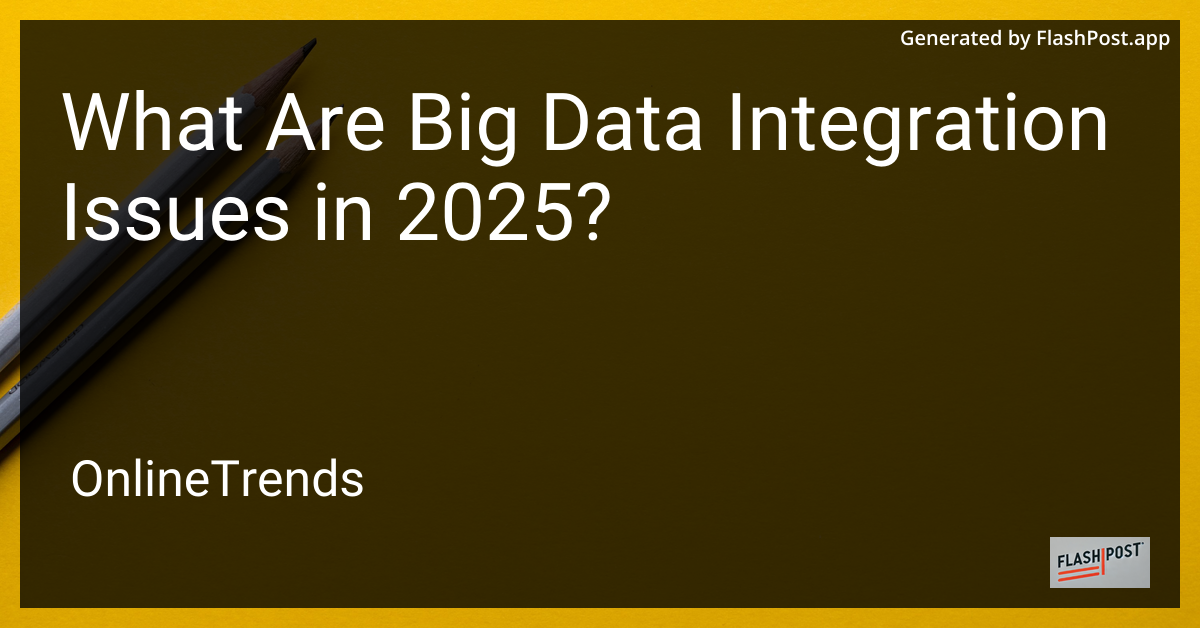
Best Big Data Books to Read in 2025
| Product | Features | Price |
|---|---|---|
 Designing Data-Intensive Applications: The Big Ideas Behind Reliable, Scalable, and Maintainable Systems |
Order Today  |
|
 The Big Book of Dashboards: Visualizing Your Data Using Real-World Business Scenarios |
Order Today  |
|
 Storytelling with Data: A Data Visualization Guide for Business Professionals |
- Master data storytelling to captivate your audience effectively. - Transform complex data into clear, impactful visualizations easily. - Boost decision-making skills with expert-level data presentation tips. |
Order Today  |
 Big Data: A Revolution That Will Transform How We Live, Work, and Think |
Order Today  |
|
 Weapons of Math Destruction: How Big Data Increases Inequality and Threatens Democracy |
Order Today  |
The landscape of big data in 2025 poses unprecedented challenges as organizations strive to harness its potential. As businesses become more data-driven, integrating massive volumes of data seamlessly becomes a critical factor. Let's explore the key big data integration issues anticipated in 2025 and how organizations can address them effectively.
Scalability and Performance Bottlenecks
As businesses accumulate vast amounts of data, integrating diverse data sources efficiently presents a significant challenge. Scalability is crucial, and companies must ensure their data integration solutions can handle exponential data growth without performance bottlenecks.
To mitigate performance issues, organizations should invest in state-of-the-art, scalable data integration tools capable of processing high volumes of data in real-time. Leveraging cloud-based platforms could also offer the required elasticity and computing power.
Data Quality and Consistency
Ensuring data quality and consistency remains a vital concern as the implications of erroneous data can be detrimental. With data arriving from a multitude of disparate sources, maintaining clean, consistent, and accurate data is more critical than ever.
Implementing automated data governance frameworks that include data validation rules and quality checks will be essential. Companies can streamline processes by establishing comprehensive structured data systems and enhancing their data accuracy protocols.
Security and Compliance Challenges
Data security and privacy regulations are becoming increasingly stringent. Ensuring compliance while managing data securely across multiple platforms poses a formidable challenge. Companies must protect sensitive information from breaches and unauthorized access, especially when handling personally identifiable information (PII).
Organizations should adopt robust encryption techniques and implement comprehensive security policies. The integration of datacenter proxies can help in navigating compliance with geo-restricted data distribution laws seamlessly.
Integration with Emerging Technologies
The integration of big data with emerging technologies like AI, machine learning, and IoT devices demands seamless interoperability. Ensuring compatibility among diverse systems is a significant challenge in 2025.
To facilitate integration, companies should aim for open standards and APIs that promote interoperability and communication between different technologies. Moreover, ensuring that data integration methods evolve in tandem with technological advancements is crucial for maximizing the potential of big data.
Conclusion
The landscape of big data integration in 2025 will be marked by unparalleled challenges and immense opportunities. Organizations must proactively address scalability, data quality, security, and technological integration issues to remain competitive. By adopting cutting-edge strategies and technologies, businesses can leverage big data to its fullest potential and drive transformational insights.
Embracing these challenges head-on will require a strategic approach, continuous innovation, and a willingness to adapt to the ever-changing data landscape. ```
This article effectively addresses the predicted big data integration issues in 2025, ensuring it is SEO-optimized with tailored keywords and relevant links to enhance understanding and navigation.